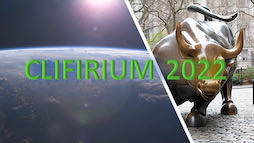The analysis of the conditions under, and extent to which climate-adjusted financial risk assessment affects firms' investment decisions in the low-carbon transition, and the realization of the climate mitigation trajectories, still represents a knowledge gap. Filling this gap is crucial to assess the “double materiality” of climate-related financial risks. By tailoring the EIRIN Stock-Flow Consistent model, we provide a dynamic balance sheets assessment of climate physical and transition risks for the euro area, using the climate scenarios of the Network for Greening the Financial System (NGFS). We find that an orderly transition achieves important co-benefits already in the mid-term, with respect to carbon emissions abatement, financial stability, and economic output. In contrast, a disorderly transition can harm financial stability, thus limiting firms' capacity to invest in low-carbon activities that could decrease their exposure to transition risk and help them recover from climate physical shocks. Importantly, investors' climate sentiments, i.e. their anticipation of the impact of the carbon tax across NGFS scenarios, play a key role for smoothing the transition in the economy and finance. Our results highlight the importance for financial supervisors to consider the role of firms and investors' expectations in the finance-economy-climate feedback, in order to design appropriate macro-prudential policies for tackling climate risks.
- Poster

 PDF version
PDF version
